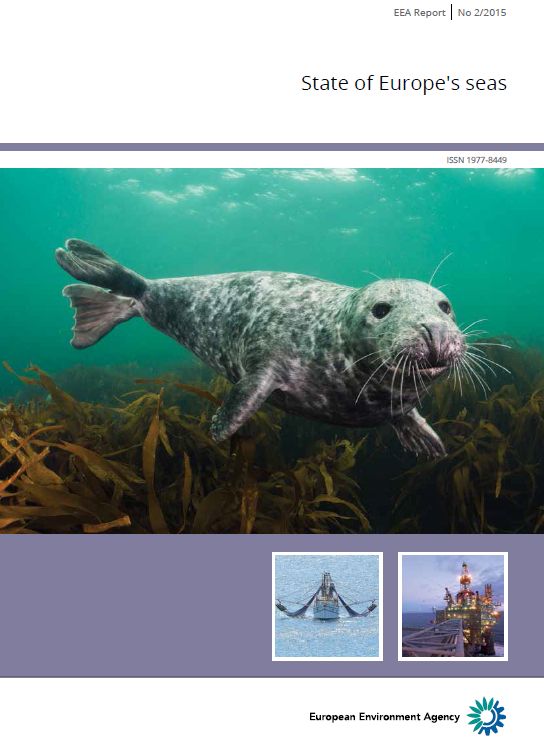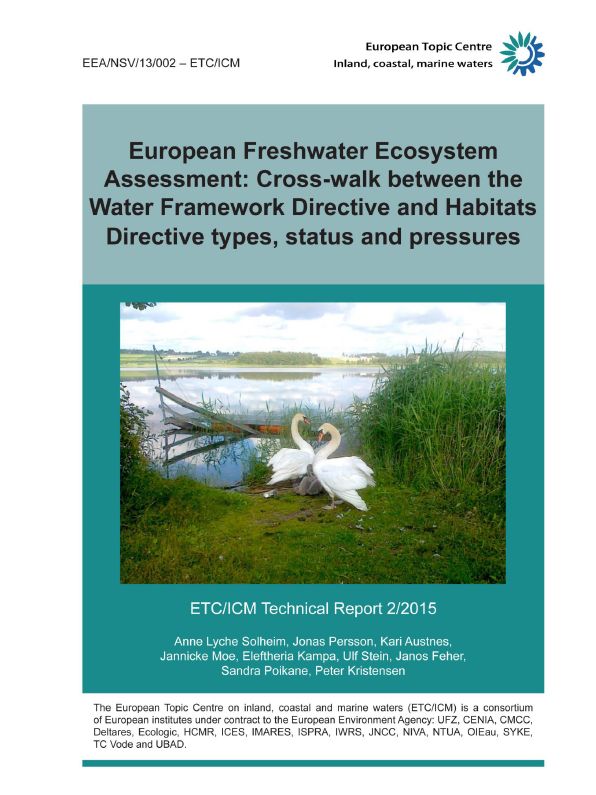
State of Europe's Seas
- Publication
- Citation
EEA, 2015, State of Europe’s Seas, Technical report No. 2/2015, European Environment Agency, Copenhagen.
The European Environment Agency's (EEA) report aims to assess whether Europe is meeting the goals of the European Marine Strategy Framework Directive (MSFD). The authors, among them scientists at Ecologic Institute, argue that the European Union is not on a path to fulfill its ambition of achieving sustainable use of its seas; despite being fully capable to do so using the current array of existing policies and knowledge. The report is available for download.
Europe's seas are an important source of food, raw materials and energy, and are home to a wide variety of marine biodiversity and ecosystems. Understanding the importance of these marine ecosystems, EU policy-makers established the 2008 Marine Strategy Framework Directive (MSFD), in an effort to protect and preserve the marine environment and the resources it provides. While promoting ecosystem-based management, the three main goals of the MSFD are for Europe's seas to be healthy, clean and undisturbed, and productive. The report State of Europe's seas is available for download.
The main aim of the EEA's new report, the State of Europe's Seas, is to assess whether Europe is meeting these goals. Based on available data, the EEA concludes that while Europe's seas are 'productive', they cannot be considered 'healthy' or 'clean'.
The report goes further to identify the main sustainability challenges affecting Europe's seas, and how the EU is responding to these challenges. These include pressures such as physical damage to the sea floor (i.e. from bottom trawling), extraction of fish and shellfish, introduction of invasive alien species, eutrophication from nutrient input, marine litter, and other emerging pressures associated with climate change and human activities.
A significant part of these pressures arise from activities at sea, and are at the core of the EU’s Blue Growth strategy: the extraction and production of living resources, energy production, transport and tourism. Continuation of these activities without adequate management strategies in place threatens the productivity and resilience of marine ecosystems, and ultimately human well-being.
The report argues that the EU is not on the path to fulfil its ambition of achieving sustainable use of its seas; although it is fully capable through the current array of existing policies and knowledge. To ensure future sustainability of Europe's seas, it is necessary to align policy ambitions of economic growth with policy targets of securing 'healthy', 'clean' and 'productive' seas. This alignment will require fundamental shifts in the socio-technical systems that fulfil societal needs.



